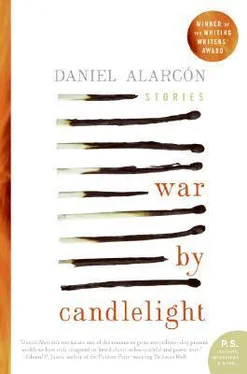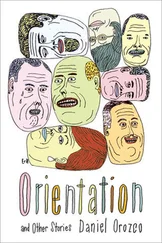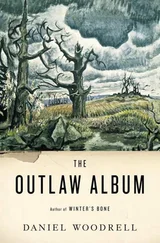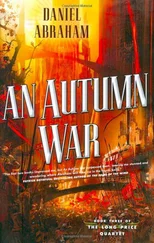Don José, as a young man, had been a Communist. It was easy and logical. His brothers and sisters had all taken the well-worn paths that life in the provinces afforded them. Ricardo and Jaime were farm workers and spent their days bent over in fields they did not own. Luis worked in a leather shop, crafting saddles and belts, bags and soccer balls. By the time Fernando entered high school his uncle Luis was nearly blind. Don José’s sisters had never had schooling beyond the fifth grade. They had married young, become the kinds of women who tended to their husbands’ houses without complaint or worry. They shopped every morning for that day’s meals and went to the plaza to have their letters read to them. Life was work. Life was spent living. Don José read books, studied, became a schoolteacher, and eventually a principal. He loved, he married, and he strayed. Mateo, Fernando’s half brother, came to live with the family when he was five. Don José found himself, now the gentleman he had always imagined he could be, disappointed in himself, in his lack of drive and desire. Fernando carried within him those qualities that time had conspired to take from his father.
One must understand what it means to be born at the foot of a volcano. Arequipa is less a city than a living temple to El Misti, that imposing mass of rock rising behind the cathedral. Men invoke its name to describe what is right. What does a volcano do to a man but impress upon him the need to dream on a grand scale?
In 1950, when Fernando was two years old, Independencia went on strike. The students closed the doors of the school, locked themselves inside to protest the raising of school fees. Three tense days followed, with skirmishes along the fences and students pulling stones from the courtyard to throw at police. The government sent in the army, a student was killed. The city took to the streets. Every man in Arequipa knew that if the cathedral’s bell was ringing, it was time to rally in the square. The city’s narrow lanes filled with angry townspeople, farmers, ranchers, merchants, students. In Arequipa, you had a right to be angry. You had a right to demand better: didn’t their volcano prove that they were destined for much more? And people listened: as Arequipa went on strike, other cities and towns across Peru followed suit. The crisis came and power changed hands. The stage shifted. If only for a day, a week, a month, those in power were forced to listen to the people. This was how things got done. This was tradition.
The party rose to a boil. Someone had dusted off a guitar, and Mateo was threatening to sing. He had returned from a trip north, bronzed and happy, telling stories of Ecuadorian girls and nights on the beach. Enrique was dancing with Inés, chiding his sister for her lack of rhythm. Don José felt a warmth in his chest, the comforting sensation that everything was going to be fine; that his work, if such a thing existed, was nearly done. He wasn’t old, not yet, but look at what he had accomplished! His children stood before him in diverse stages of drunken cheer, and they all seemed like the kind of people he’d like, if he were to meet them as strangers on a train station platform or in a European café. He had raised them well, or his wife had, or maybe they had done it together — but still: he hadn’t ruined them! Don José felt like weeping: his children were the sort of people who would make something out of this country, who could redeem this mess they’d inherited. He wanted to touch their faces, to show them off to the world. Could they be real?
Someone called for a toast. The room had the flickering warmth of a silent movie, except suddenly Don José was talking, the words, he feared, pouring forth without poetry, without grace. He was forced to admit he’d lost count of the drinks. His loved ones laughed with him. Fernando stood with his mother, their hands clasped tightly. She had missed him most this year. It was terrible to see her this way, Don José thought. Watching their son from afar held no pleasure for her: she couldn’t appreciate the spectacle the way Don José could. Now, their youngest nearly a man, and look at her: holding his hand like a child, and Nano, generous-hearted, letting her.
He was a beautiful boy.
When he finished, Don José found a place on the sofa, a comfortable position from which to gaze at his family. An hour passed and the liquor ran out. Inés apologized, smirking. “I didn’t prepare for you hooligans.”
Mateo consoled a red-faced Fernando, shouting in his ear as if he were hard of hearing, “No more liquor? It’s all right, Nano, we’ll drink vinegar!”
To Don José’s surprise, his wife joined him after a while. She brought him coffee and sat close to him, their thighs touching for the first time in many months. He took her hand and raised it to his lips. She blushed. Someone was singing — off-key, out of tune — did it matter? Don José kissed his wife’s hand softly.
VI. Pinochet’s Graveyard, 1973
In December of 1973, José Carlos arrived from Santiago de Chile, thin, broken, with hands that shook uncontrollably. He stumbled over his words and brooded in long silences, looking away into the distance, the ash from his cigarette floating into his lap.
“They killed me, Negro, they killed me,” he said, his voice trembling. Fernando met him at the airport; José Carlos staggered off the last airlift of Peruvian citizens from Chile. The rest stayed to die.
“Where did they keep you?”
“In Pinochet’s graveyard, in the stadium. We had nothing to defend ourselves with.”
The story came out slowly, over many nights. José Carlos was smaller and weaker than Fernando remembered. His movements came haltingly: a finger rubbing his temples, a foot tapping an uneven rhythm. Five years at the university in Santiago. José Carlos had been expelled without papers, without a degree, with nothing.
“What did they do to you, José Carlos?”
“They killed me. They kept us in the stadium. There were thousands of us. I was locked in a dressing room under the stands with two hundred others, mostly students. Communists. They kept the lights on, fluorescent lights, burning our eyes. We slept in groups, took turns standing. Twelve hours at a time, standing with people I’d never met before and others I knew well. It was impossible to sleep. We heard shots sometimes from outside. People were dragged out screaming and never came back. They pulled me out too. I was angry. You’re going to die, you piece of shit. Comunista . They spat on me. Peruvian dog, you’re going to die in Chile today! I told them to go to hell. They were young, the soldiers, just children, but cold. They wouldn’t look me in the eye. I remember one of the officers: he was silent, standing behind. He had big hands. Finally, he yelled out, Tie him up, and they did. They put my hands behind my back and then blindfolded me. I spat at them. Say your last words, Communist. Fuck off, I said. I’m ready.”
José Carlos spilled the ashtray with a clumsy brush of his arm; he was shaking violently. Fernando moved quickly to sweep the ash into his hands.
“They shot me, Negro! They killed me!” José Carlos brought his hand down hard against the table, slapping it loudly. “They shot me with blanks! They played at killing me!”
“They dragged me back to the dressing room. I smelled from my own piss and shit. My friends there held me. Someone threw water on me. You’re alive, they said, but I didn’t believe them. No bullet touched you, they said, but I knew I had felt it. I spent three days dead, Fernando. Three days…”
José Carlos’s voice was thin and smoky. “That’s what they’re going to do to you.”
“What do we do, Perucho ?” Fernando took his hand and squeezed. “You’re home. We’re alive.”
Читать дальше












